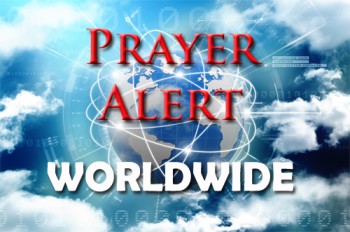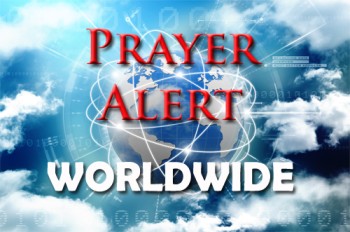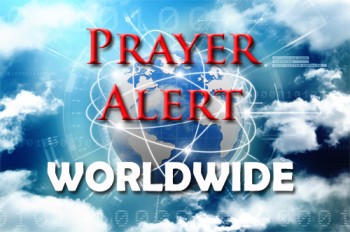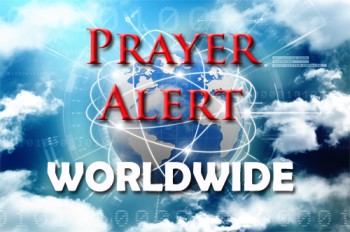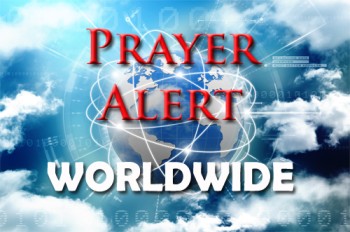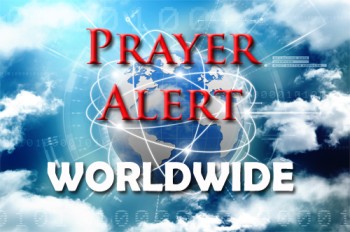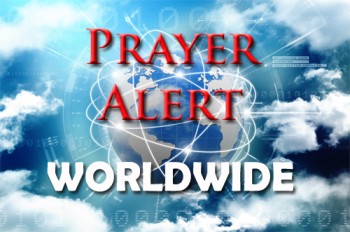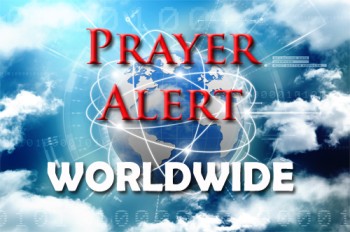Displaying items by tag: USA
USA: Zuckerberg in trial to assess addictive effects of social media
A major court case has just begun, designed to examine whether social media platforms are intentionally designed to keep children engaged in harmful ways. A young woman, ‘Kaley’, alleges that after she began using Meta and WhatsApp as a child, she developed anxiety, distorted body image, and suicidal thoughts after prolonged exposure. Company leaders argue they implemented safety measures and relied on research showing mixed evidence about mental health harm. Parents, however, say their children were exploited through addictive features and inadequate age protections. The trial, which started by cross-examining Mark Zuckerberg, might influence hundreds of similar cases and could force changes to how social media platforms operate. The debate raises broader concerns about technology, profit, responsibility, and the wellbeing of young people growing up online.
Nigeria: over 200 dead after massacres in Muslim-majority villages
A brutal massacre in Nigeria’s Kwara state left more than two hundred dead after gunmen attacked two Muslim-majority villages for rejecting extremist teaching. Witnesses said the attackers arrived on motorcycles, entered a mosque and shot worshippers, then moved house to house killing, kidnapping and burning residents. Many victims were tied before execution, and entire families were wiped out. Survivors fled, leaving only a few men to bury bodies among destroyed homes. Authorities blamed Boko Haram-linked militants, and the army deployed troops while local groups struggled to respond. The violence reflects Nigeria’s wider insurgency, where armed factions target both Muslims and Christians, spreading fear across communities. International partners are now providing intelligence support, yet the tragedy shows the urgent need for protection, reconciliation and healing for traumatised survivors who have lost loved ones and livelihoods. In related news, the USA is to send two hundred soldiers to Nigeria to train local forces: see Nigeria’s military recently claimed to have killed a senior Boko Haram commander and ten other militants in Borno.
Middle East: Trump and Netanyahu meet as Iran talks continue
Rising tensions in the Middle East frame a significant meeting between Donald Trump and Benjamin Netanyahu in Washington. Israel is seeking a comprehensive agreement restricting Iran’s nuclear programme, missile development, and support for regional proxy groups, while Iran has signalled willingness to limit nuclear activity in exchange for sanctions relief but rejects broader demands. The USA has increased military presence in the region, warning of possible strikes if negotiations fail, yet leaders on all sides are continuing the dialogue. Iran’s position has been weakened by the huge recent protests, while Israel fears a deal that leaves long-term threats unresolved. At the same time, the Trump administration is pressing Israel and Hamas to implement the next phase of their ceasefire agreement in Gaza, with accusations of violations and little progress towards reconstruction.
USA: Trump puts up racist video, deletes it later
A social media video shared by Donald Trump and later deleted drew widespread condemnation across political lines. The clip promoted false election claims and, near its conclusion, depicted Barack and Michelle Obama with their faces superimposed onto dancing apes. Posted during Black History Month, the video revived racist imagery historically used to justify slavery and segregation. The White House initially defended the post as a meme but later said a staff member had shared it in error. Politicians (including some Republicans), diplomats, and commentators criticised the content as dehumanising and harmful. Analysts noted that such inflammatory behaviour might not significantly affect Trump’s political support because public opinion around him is already polarised. One commentator said, ‘That Trump chose to post this video is yet another indicator of how reactionary racism has become mainstream and normalised within his Republican party, as the GOP continues to lurch dangerously rightwards.’
Minneapolis: Trump says DHS might need ‘softer touch’ as hundreds of agents are withdrawn
Donald Trump has said he personally decided to withdraw hundreds of federal law enforcement agents from Minneapolis, following huge protests after Alex Pretti was shot on 24 January (see ). About 700 agents from the Department of Homeland Security (DHS) are set to leave the Twin Cities, with the goal of ‘a full drawdown’. Trump said the move was tied to negotiations over the release of detained prisoners and took credit for falling crime rates in Minnesota, even though there have been accusations that federal agents violated constitutional rights through aggressive tactics. Minnesota governor Tim Walz and Minneapolis mayor Jacob Frey have both criticised the operations, while Trump suggested that in future DHS might need to use a ‘softer touch’ alongside firmness. The episode highlights deep national divisions over immigration, public safety, accountability, and the appropriate use of federal power.
USA: Trump will cut tariffs if India stops buying Russian oil
Claims of a major shift in global energy politics emerged after Donald Trump announced plans to cut tariffs on Indian exports. Trump said he had agreed a trade deal with Narendra Modi in which India would stop buying Russian oil, a move he argued could help bring an end to the war in Ukraine. India has been one of Russia’s largest customers since 2022, benefiting from discounted prices as Western nations reduced purchases. While Modi welcomed the tariff reductions and spoke positively about peace, he did not publicly confirm any pledge to halt Russian oil imports. India remains heavily dependent on overseas energy and has emphasised diversification rather than abrupt change. It has already started to cut back on buying Russian oil, even though Moscow insists supplies remain uninterrupted. For an insight on India’s shifting relationship with Russia, see
Oklahoma: revival breaks out at roofers’ convention
An unexpected move of God took place at RoofCon, a major roofing convention held in Oklahoma City. Though the event was designed to equip professionals with business skills, founder Hunter Ballew sensed the Holy Spirit calling him to use the platform for eternal purposes. Evangelist Clayton King was invited to share a clear and simple Gospel message, emphasising how individuals can truly know they are born again. Attendance at the final session was voluntary, yet many remained. In a spontaneous step of faith, organisers purchased horse troughs and set up baptisms on the convention floor. Over two hundred men and women responded to the Gospel, with dozens immediately baptised. King described the moment as a powerful work of the Holy Spirit, noting a growing hunger for faith beyond church walls. He believes this reflects a wider awakening, as secular promises fail and hearts respond afresh to the transforming power of the Gospel.
Iran / USA: possible scenarios if Trump decides to attack
As Donald Trump warns Iran that ‘time is running out’ for a nuclear deal (see ), and with US forces reportedly preparing for strikes on Iran within days, the consequences are far from clear. Limited ‘surgical’ attacks could hit Revolutionary Guard facilities, missile sites and nuclear infrastructure, but hopes for a rapid transition to democracy look highly optimistic, given past interventions elsewhere. Another scenario is the regime surviving but moderating its behaviour, though Iran’s leaders have historically resisted change. Many observers fear a collapse followed by hard-line military rule, or worse, nationwide chaos and conflict involving ethnic minorities. Iran has vowed retaliation, which could take the form of missile and drone attacks on US bases or warships, or mining the Strait of Hormuz, which is a vital shipping ‘chokepoint’, especially for global oil and LNG. Iran’s Arab neighbours, all US allies, are understandably jittery that Iran could attack them. The most dangerous scenario is escalation into a wider war with no clear end-state and severe regional and economic fallout.
Minneapolis: continuing protests and criticism over federal crackdown
Two agents have been placed on administrative leave following the fatal shooting of Alex Pretti, a 37-year-old intensive care nurse, in Minneapolis on 24 January. The killing has sparked protests, national outrage, and calls for accountability within the Department of Homeland Security (DHS). Initial official claims that Pretti was brandishing a gun have been questioned after video analysis found no weapon visible. A preliminary report states the shooting occurred during a physical struggle, contradicting earlier statements. The incident comes as protests continue over the federal immigration crackdown. Minneapolis mayor Jacob Frey has clashed publicly with Donald Trump over immigration enforcement and rhetoric, while another critic, Representative Ilhan Omar, who was attacked in a public meeting on 26 January, has blamed Trump for increases in threats against her. With tensions running high and investigations continue, lawmakers are considering impeachment proceedings and removing funding for DHS in spending legislation which Congress must pass to keep the government from shutting down on 1 February. For an example of the heavy-handedness of the federal approach, see
Atheist filmmaker abandons unbelief for Jesus
A growing spiritual awakening among Gen Z and Millennials is reflected in the testimony of filmmaker Michael Ray Lewis, a former atheist who has now turned to Christ. He says his unbelief was shaped by unanswered objections about evolution, evil, and judgment, reinforced by atheist media portraying Christianity as intellectually bankrupt. Determined to disprove his wife’s renewed faith, he began attending church and revisiting Christian claims. What started as resistance slowly turned into curiosity as Lewis discovered thoughtful responses to his questions and positive evidence for God’s existence. Scientific insights, particularly from astrophysics, challenged his assumption that faith and reason were incompatible. After several years, he realised that his remaining objections were rooted not in evidence but in unwillingness to believe. In 2016, he surrendered his life to Christ. Leaving behind his horror film career, he felt called to serve God creatively and produced the documentary Universe Designed, presenting compelling scientific and philosophical evidence for an intelligent Creator.
